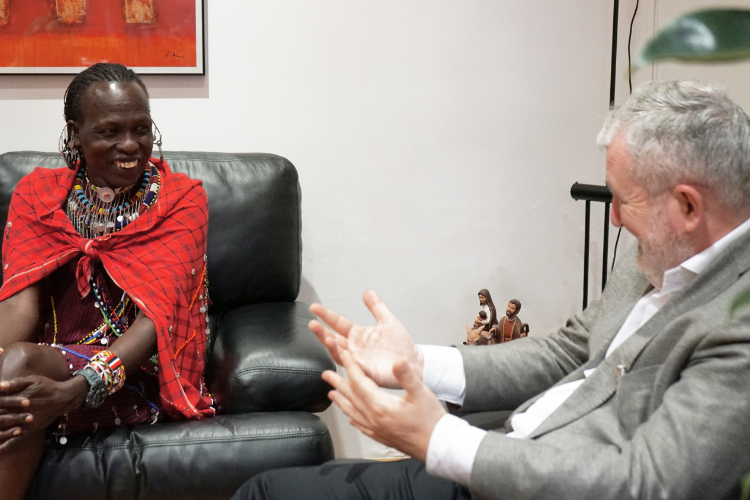William Kikanae Ole Pere, leader of the Maasai community, one of the most important tribes in Africa, paid a visit to IQS on 16 March with the aim of making the entire university community aware of the projects he and his tribe are working on.

William Kikanae Ole Pere, leader of the Maasai community, one of the most important tribes in Africa, paid a visit to IQS on 16 March with the aim of making the entire university community aware of the projects he and his tribe are working on.
William established and heads a kindergarten and primary school that is home to more than 250 girls and boys. He is also responsible for an artisanal cooperative that employs more than 1,000 women and through which they also offer healthcare and prevention services for the entire Maasai community. As the head of his tribe, he also leads sustainable reforestation initiatives in the tribe's homeland.
All of the tribe's projects are funded by the circular economy, supported through a camp for tourists who want to discover the Maasai lifestyle from within African culture itself. In fact, William is the official National Geographic guide for the Masaai Mara National Reserve.
With this in mind, and considering that one of his most recent initiatives has involved launching a hospitality school, William Kikanae Ole Pere gave a speech on entrepreneurship and self-managed sustainable tourism to the students in the Undergraduate Programme in Tourism and Hospitality Management at IQS.
The visit also included a lunch and discussion session so students could learn more about the tribe's projects, organized jointly by the Department of Tourism and Hospitality Management at the IQS School of Management and the Department of Ethics and Christian Thought.
Students and professors alike were able to learn about the Maasai artisanal work done by the women at the cooperative through an agreement with international fashion companies.
The Association for Development, Alternative Trade, and Microcredit (ADCAM) is the non-profit association that develops programmes for education, health, sustainable development, microcredit, fair trade, and gender equality in Kenya and within the Maasai culture.










